Libya
Hundreds of migrants from Africa continue to arrive in Libya daily amid high temperatures, after Tunisian authorities began conducting mass expulsions in early July, according to the U.N. and humanitarian groups.
In the border area between Libya and Tunisia at a Libyan border guard facility, media were given access to a group of migrants who said they have been stranded for about a month and have been suffering food and water shortages.
Protesting in front of the cameras, they held up signs that read "No food, no water, no shelter," and chanted "Black Lives Matter."
Mubarak Adam Mohamed, a migrant from Sudan, said they hope international organisations can find them an emergency solution.
In the last two weeks, Libyan border guards say they have rescued hundreds of migrants who were taken by Tunisian authorities to the border, 150 kilometres (93 miles) southwest of Tripoli.
In Ras Jedir, 350 migrants are still staying in a camp, including 65 children and 12 pregnant women.
In the wake of clashes that claimed the life of a Tunisian citizen in early July, hundreds of African migrants were expelled from Sfax in central eastern Tunisia.
Sfax is considered the main starting point for irregular migration to Europe.
The Human Rights Watch reports that the Tunisian police "expelled" at least 1,200 African migrants and left them at the border with Libya to the east and Algeria to the west.
According to humanitarian organisations in Libya, at least 17 people have died in the desert between Libya and Tunisia in the past three weeks.
Tunisia’s interior minister conceded that small groups of sub-Saharan migrants trying to enter the country are pushed back into the desert border areas with Libya and Algeria, but labeled as “false allegations” claims by the U.N., humanitarian groups and migrants themselves of mistreatment.
Kamel Fekih told AP on Wednesday that while there is no “collective” expulsion of migrants, small groups trying to enter Tunisia are pushed back into the desert no man's land.
Libya is also a dominant but dangerous transit point for migrants from Africa and the Middle East trying to make it across the perilous Central Mediterranean Sea route to Europe.
The country plunged into chaos following a NATO-backed uprising that toppled and killed longtime autocrat Moammar Gadhafi in 2011.
Oil-rich Libya has been ruled for most of the past decade by rival governments in eastern and western Libya, each backed by an array of militias and foreign governments.
Human traffickers have benefited from the decade of instability, smuggling migrants across borders from six nations, including Egypt, Algeria and Sudan.
But traffickers and militia members in Libya have also committed what could amount to crimes against humanity, according to a panel of UN-backed experts.
Migrants have described instances of extortion, torture, rape and sexual assault in Libyan detention centers.




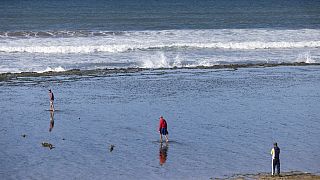
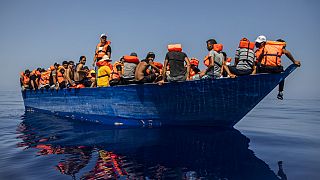
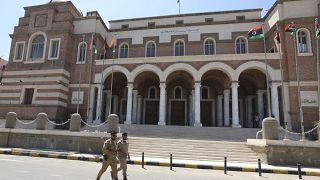
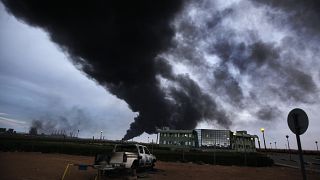
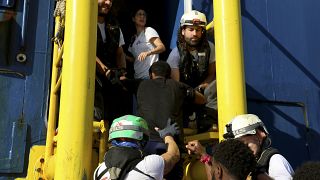
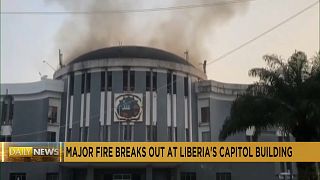

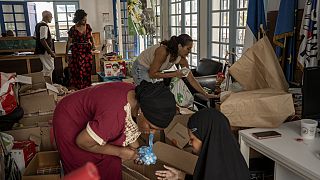
01:41
Saturday showdown: Esperance Tunis takes on Pyramids in Rades
01:24
Boat capsize near Lampedusa: 11-year-old girl rescued
02:16
Hundreds of African migrants in Lebanon await repatriation after Ceasefire
01:28
CAF Champions Leagues kicks off, ES Tunis - Djoliba AC to clash in opener
01:48
Meet one of the teams patrolling Senegal's waters to rescue migrants on small boats
01:00
Tunisia: French student detained for weeks, flies back home